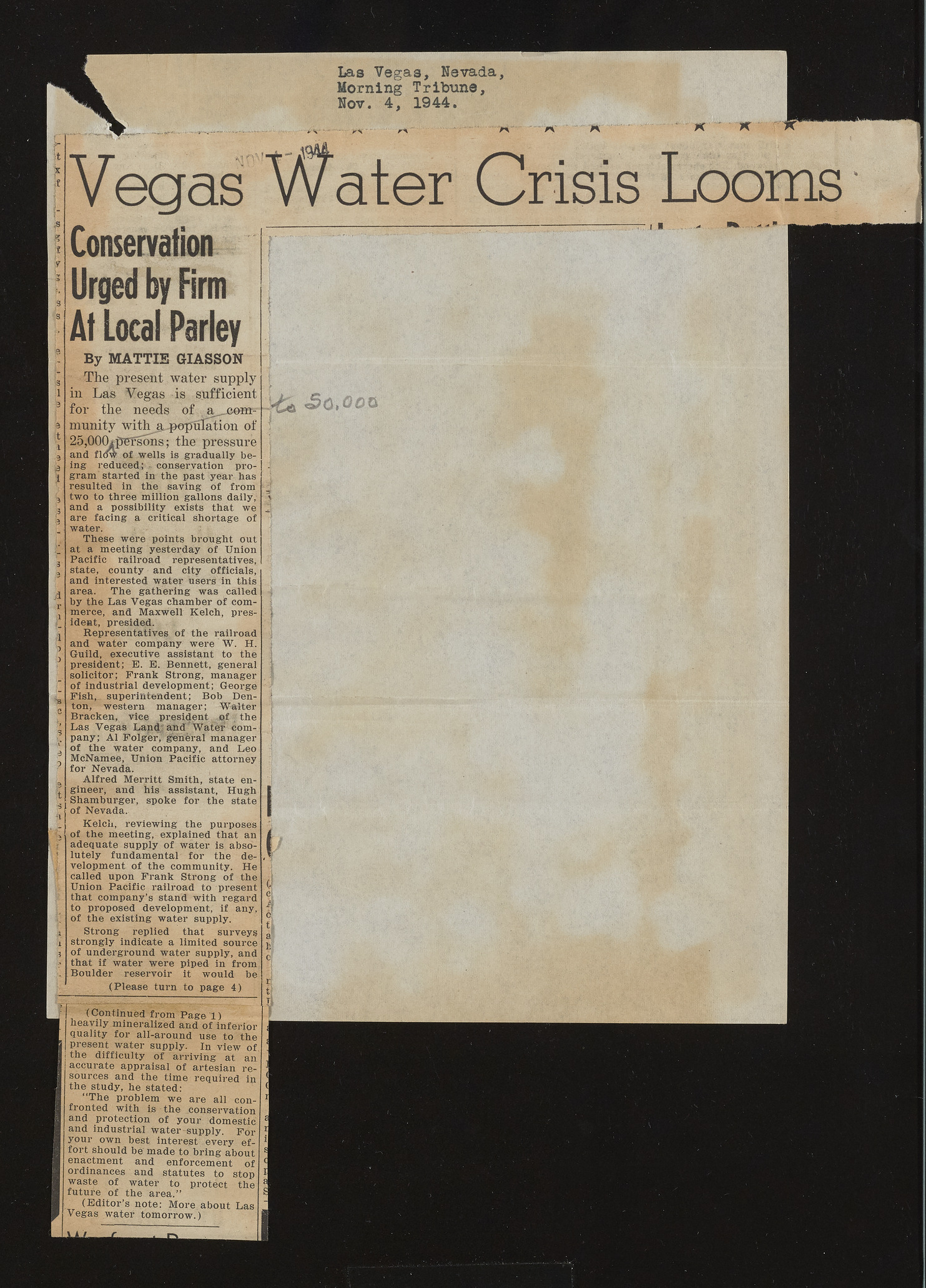Copyright & Fair-use Agreement
UNLV Special Collections provides copies of materials to facilitate private study, scholarship, or research. Material not in the public domain may be used according to fair use of copyrighted materials as defined by copyright law. Please cite us.
Please note that UNLV may not own the copyright to these materials and cannot provide permission to publish or distribute materials when UNLV is not the copyright holder. The user is solely responsible for determining the copyright status of materials and obtaining permission to use material from the copyright holder and for determining whether any permissions relating to any other rights are necessary for the intended use, and for obtaining all required permissions beyond that allowed by fair use.
Read more about our reproduction and use policy.
I agree.Information
Digital ID
Permalink
Details
Member of
More Info
Rights
Digital Provenance
Publisher
Transcription
Las Vegas, Nevada, MNoovr.n in4,g T1r9i44b.une, "M"' ^.TM? ‘ " M X ......X Vegas Water Crisis Looms Conservation Urged by Firm At Local Parley By MATTIE GIASSON The present water supply in Las Vegas is sufficient for the needs of a^eoifL munity with§^o^fulation of 25,00(hprfsons; the pressure and flrfw of wells is gradually being reduced; conservation program' started in the past year has resulted in the saving of from two to three million gallons daily/ and a possibility exists that we are facing a critical shortage of water. These were points brought out at a meeting yesterday of Union Pacific railroad representatives, state, county and city officials, and interested water users in this area. The gathering was called by the Las Vegas chamber of commerce, and Maxwell Kelch, president, presided. Representatives of the railroad and water company were W. H. Guild, executive assistant to the president; E. E. Bennett, general solicitor; Frank Strong, manager of industrial development; George Fish, superintendent; Bob Denton, western manager; Walter Bracken, Vice president of ?; the Las Vegas Land and J Water company; A1 Folger,' general manager of the water company, and Leo McNamee, Union Pacific attorney for Nevada. Alfred Merritt Smith, state engineer, and his assistant, Hugh Shamburger, spoke for the state of Nevada. Kelch, reviewing the purposes of the meeting, explained that an adequate supply of water is absolutely fundamental for the development of the community. He called upon Frank Strong of the Union Pacific railroad to present that company’s stand with regard to proposed development, if any, of the existing water supply. Strong replied that surveys strongly indicate a limited source of underground water supply, and that if water were piped in from Boulder reservoir it would be (Please turn to page 4) (Continued from ‘Page 1) heavily mineralized and of inferior quality for all-around use to the present water supply. In view of the difficulty of arriving at an accurate appraisal of artesian resources and the time required in the study, he stated; “The problem we are all confronted with is the .conservation and protection of your domestic and industrial water-supply. For your own best interest every effort should be'made to bring about enactment and enforcement of ordinances and statutes to stop waste of water to protect the future of the area.” (Editor’s note: More about Las Vegas water tomorrow.) t R Vf I

